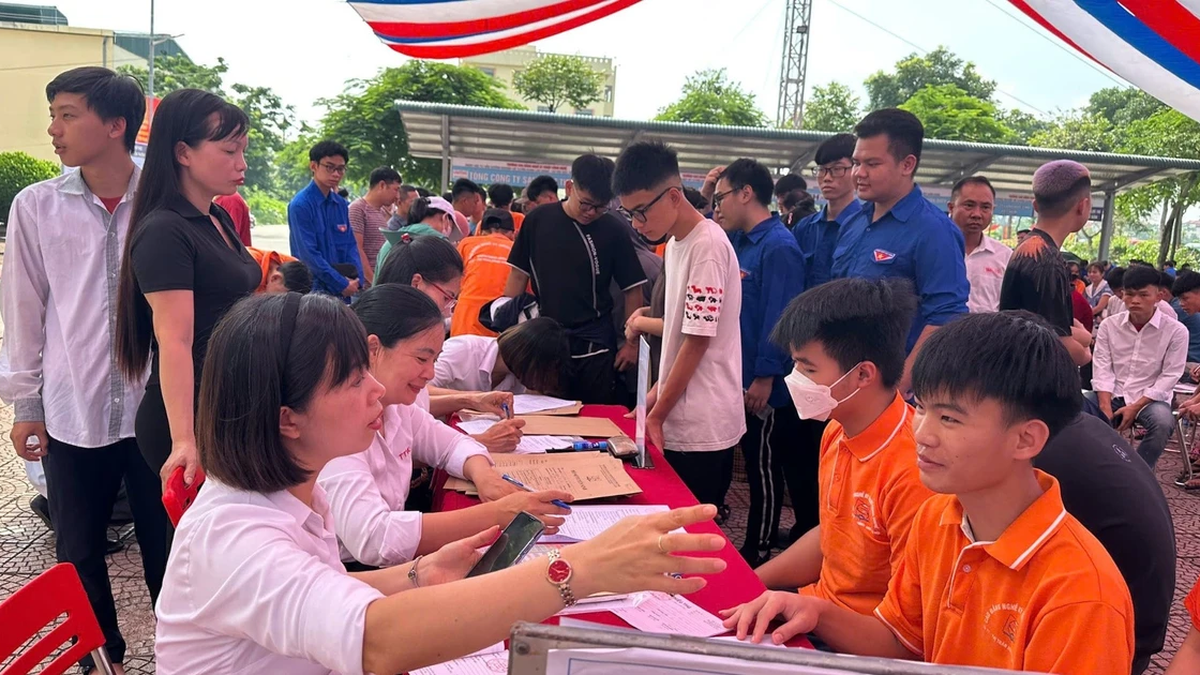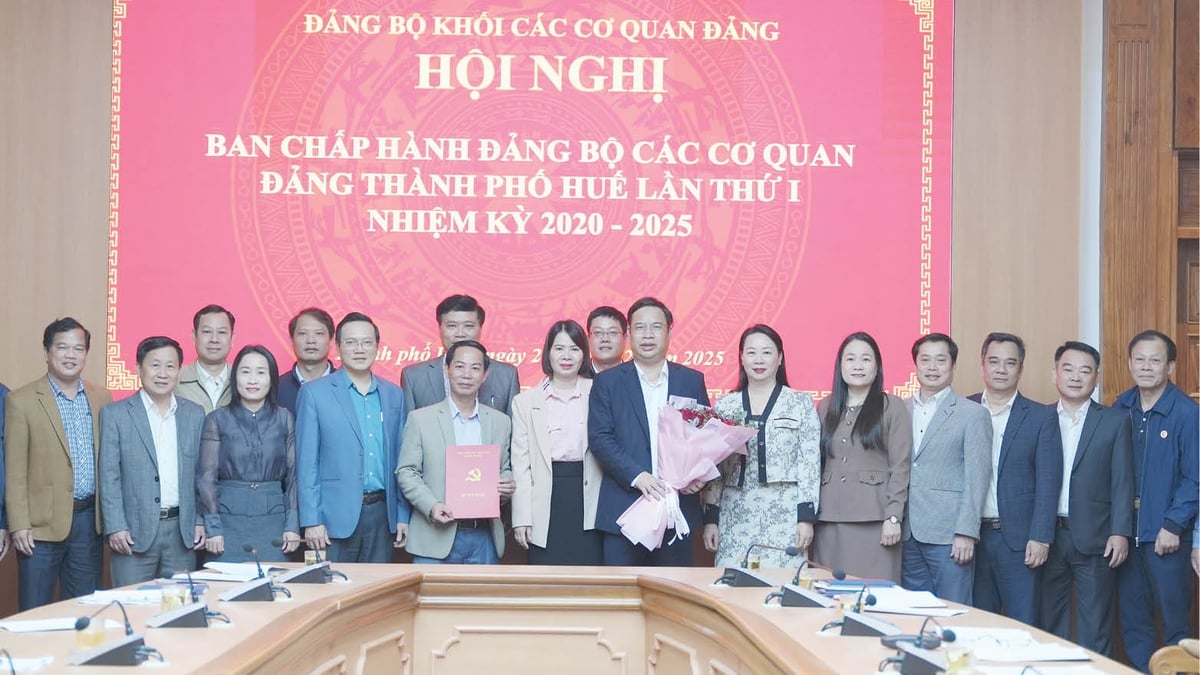 |
| The Ministry of Finance 's report was based on financial reporting data of 28,918 FDI enterprises . Photo: Duc Thanh |
Foreign invested enterprises suffer huge losses
Deputy Prime Minister Nguyen Chi Dung has just requested relevant agencies to coordinate in reviewing and evaluating the loss-making business situation of foreign direct investment (FDI) enterprises.
This request was made after many press agencies published this content based on a recent report by the Ministry of Finance . Specifically, according to the reporter's information, at the end of December 2024, the Ministry of Finance sent a report to the Government on the results of synthesizing and analyzing the 2023 financial statements of FDI enterprises. This is a report that the Ministry of Finance still conducts annually to submit to the Government.
According to the report, the business results of this group of enterprises in 2023 decreased compared to 2022. Specifically, revenue reached VND 9,416,102 billion, down 4.3%; profit after tax was VND 337,027 billion, down 15.7%. As a result, the amount paid to the state budget also decreased slightly, from VND 197,087 billion in 2022 to VND 193,238 billion in 2023.
A notable point of this report is that as of December 31, 2023, the number of enterprises reporting losses was 16,292, an increase of 21.2%; the number of enterprises with accumulated losses was 18,140, an increase of 15%; the number of enterprises with losses of equity was 5,091, an increase of 15.2%.
Also according to the report of the Ministry of Finance, the loss in 2023 is 217,464 billion VND, an increase of 32%; the accumulated loss value is 908,211 billion VND, an increase of 20%; the negative equity value is 241,560 billion VND, an increase of 29%.
"Thus, the number of enterprises reporting losses, accumulated losses, and losses in equity has been increasing for many years," the Ministry of Finance said, adding that there are enterprises making losses but still expanding investment.
However, the Ministry of Finance's report also shows that although the profits of FDI enterprises in 2023 decreased and the number of loss-making enterprises was also large, some industries had high growth rates in profits. For example, the accommodation and food service industry increased by 417.1% (VND 1,825 billion); the mining industry increased by 302.8% (VND 89 billion); professional science and technology activities increased by 43.1% (VND 3,641 billion)...
These are the areas that the Ministry of Finance considers to have "turned the tide" and achieved impressive business results, in the context of many unfavorable factors from within the country and the world, causing difficulties for many businesses and many business sectors.
These unfavorable factors are the reason why many businesses are losing money. However, it must be noted that the above reported figures do not necessarily reflect the whole situation. Because, according to statistics, by the end of February 2025, there were 42,477 valid foreign investment projects , with a total registered capital of 507.3 billion USD. Meanwhile, the report of the Ministry of Finance was based on data from 28,918 enterprises.
According to the Ministry of Finance, the failure of some localities to implement the required reporting regime has also led to a major shortage of data information, significantly affecting the process of synthesizing and analyzing the financial situation of FDI enterprises.
Build criteria to properly evaluate investment efficiency
In the report submitted to the Government, the Ministry of Finance recommended that it is necessary to build a database in the information system and connect data and information about enterprises in general and FDI enterprises in particular between relevant state management agencies, meeting the requirements of data exploitation and analysis.
In addition, it is necessary to develop investment efficiency indicators as a basis for assessing the impact of projects and operating FDI enterprises on the socio -economy and environment in order to promptly manage and prevent possible risks.
Regarding this issue, the Foreign Investment Agency (Ministry of Finance) has made efforts to develop a set of criteria to evaluate the effectiveness of foreign investment, and submit it to the Government for approval. And recently, the Government has officially issued a set of criteria to evaluate the effectiveness of foreign investment in Vietnam.
This set of criteria includes 42 indicators, including 29 economic indicators, 8 social indicators and 5 environmental indicators. This will be the basis for assessing the performance of the foreign-invested sector at the national, local and sectoral levels.
Among the economic indicators, there are groups of criteria on scale and contribution to the socio-economic development of the foreign investment sector; groups of criteria on operational efficiency, including indicators on profit and export proportion; groups of criteria on payment to the state budget; groups of criteria on spillover effects; on technology; on the contribution of foreign investment to improving Vietnam's innovation capacity...
In addition, there are 8 social indicators, such as job creation and income for workers, gender equality, and criteria for law compliance; 5 environmental indicators, such as the rate of application of energy-saving measures, the rate of establishments that comply well with environmental protection laws, the proportion of greenhouse gas emissions of foreign-invested economic organizations in the total number of establishments that must conduct greenhouse gas inventories, etc.
Thus, the criteria of profit, loss, and contribution to the state budget are just one of many criteria to comprehensively evaluate the performance of the FDI sector. This is something that has been long awaited by not only state agencies and localities, but also experts and investors.
Ever since the Foreign Investment Agency drafted this set of criteria, experts have strongly agreed and said that there must be a set of criteria to evaluate foreign investment, to see how they contribute to the economy, the pros and cons on a scientific level that is quantitative, not qualitative, to serve the policy-making process of state agencies, as well as the learning and decision-making process of investors.
And now, that set of criteria has been issued. It will be a useful support tool, contributing to improving the quality and effectiveness of foreign investment cooperation in localities in the spirit of Resolution 50-NQ/TW dated August 20, 2019 of the Politburo.
However, at that time, Mr. Phan Huu Thang himself emphasized that the criteria set by ISC was only for reference, and that a set of criteria with a "legislative" nature was still needed to be applied nationwide.
Source: https://archive.vietnam.vn/nang-chat-dong-von-dau-tu-truc-tiep-nuoc-ngoai-vao-viet-nam/
























































![[Maritime News] Container shipping faces overcapacity that will last until 2028](https://vphoto.vietnam.vn/thumb/402x226/vietnam/resource/IMAGE/2025/7/30/6d35cbc6b0f643fd97f8aa2e9bc87aea)












































Comment (0)